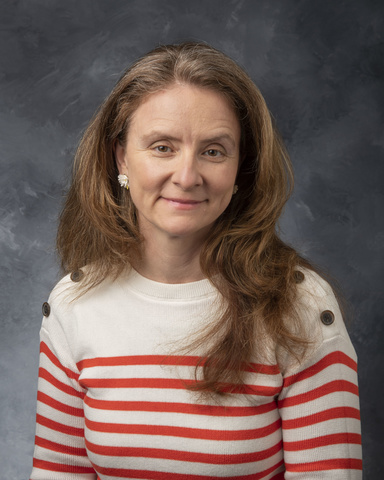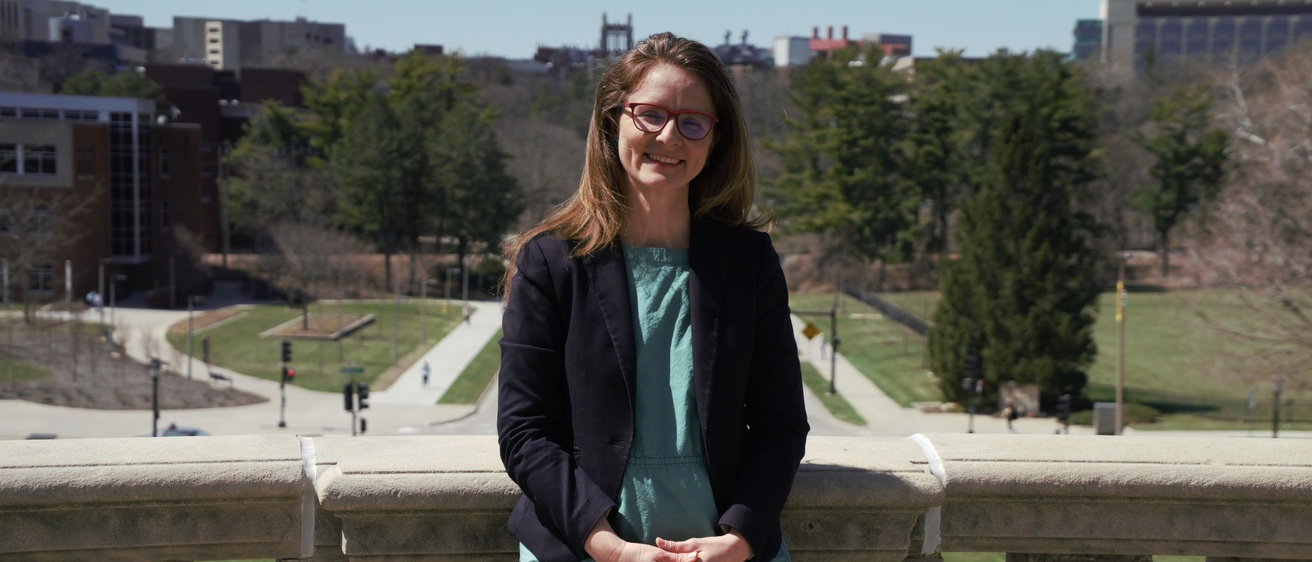
Belén Hernando Lloréns, assistant professor in multilingual education, will receive the 2023 American Educational Research Association (AERA) Early Career Award at the spring conference in Chicago.
The Early Career Award is granted by the Critical Issues in Curriculum and Cultural Studies Interest Group and recognizes a scholar in the early stages of their career who explore the ways policies, practices, and artifacts shape social histories and transform educational experiences and relationships. This award is given to one early career scholar who best demonstrates a consistent commitment to the critical study of curriculum and cultural studies.
Hernando Lloréns says this recognition is meaningful, and it reaffirms her trajectory in the field.
“Having your colleagues in the profession, first, awarding your dissertation with the Outstanding Dissertation Award in the top educational conference in the U.S. like the American Educational Research Association, and now the Early Career award, it simply feels like a pat on my back,” Hernando Lloréns says.
Hernando Lloréns, who was born and raised in Madrid, Spain, started her career as a Spanish teacher in rural Kansas. While teaching, she often grappled with understanding why Spanish 1 classes were racially diverse, when advanced Spanish classes were primarily white, or why bilingual students who were raised speaking Spanish were failing Spanish 1 at a higher rate than her white, monolingual students.
It was this impulse to try to understand what race, culture, and language had to do with equity and justice in the U.S. and internationally that compelled her to receive her doctorate in curriculum and instruction from University of Wisconsin-Madison in 2019.
“In my dissertation, I focused on how the educational sciences, policy, and practice have, historically, come to produce racial and cultural diversity as an educational ‘problem’ that requires different solutions in different historical moments,” Hernando Lloréns says.
At that time, Hernando Lloréns began publishing her research in journals. This decision, she says, was one that has been particularly rewarding in her career.
“Publishing my work came from a genuine interest to have my ideas exposed and to be able to contribute to the conversations about equity and diversity,” Hernando Lloréns says. “It really helped me to start cultivating my voice as a scholar.”
Hernando Lloréns’ overarching goal in publishing her research is rooted in the pursuit of creating a more just society and access to education.
“I draw from multiple fields beyond education, because I’ve found that issues of equity and justice in relation to racially, culturally, and linguistically diverse communities are complex and need to be examined from multiple perspectives and traditions,” Hernando Lloréns says.
Her influences and sources of inspiration come from around the world and interdisciplinary fields, leading to a lot of translation between languages and cultures in an effort to bring it into her own research.
“For me, writing is a painful and intense practice, because I need to bring all this cacophony of traditions, perspectives, and voices to the education’s audience in the journals I’m writing,” Hernando Lloréns says.
Hernando Lloréns’ research is not only published in research journals, but it is also core in how she plans her teaching to benefit her students.
Looking back on her career, Hernando Lloréns reflects on the challenges she’s faced, and the way she has triumphed with support from others.
“As a Latina, as a mother, as a woman, as an international student, this journey hasn’t been easy. But if I am where I am is because of my community of support,” Hernando Lloréns says, “Unfortunately, we’ve been made to believe this is a solo journey, but no… your voice, your success is a collective effort, inside and outside of the academic world. Not only of your family, friends, and colleagues, but also the person who cleans your house or cooks your food, so you can write.”
As for the future, Hernando Lloréns has a new research publication which will be included in the upcoming Spring issue of the Harvard Educational Review.
“This publication, ’Norms of Convivencia as Practices of Abjection: Saving the Nation by Saving the Muslim Girl,’ stems out of my dissertation study in Spain where I studied how discourses of conviviality in education come to exclude racially and culturally diverse communities in the name of inclusion,” Hernando Lloréns says. (Single quotes inside of double quotes per AP & UI Editorial Style.
Lastly, Hernando Lloréns offers advice to the next class of thinkers and writers.
“Take courses with faculty members whose work matters to you and to your scholarship. Start building relationships with them early on. Visit them in their offices, have a coffee with them, or invite them for a walk,” Hernando Lloréns says. “We need to have more of those meeting in academia - meeting while you walk. Cultivate those relationships, since they’re going to be writing your letters of recommendation when you’re applying for jobs and, in a PhD program, that matters more than your GPA.”
